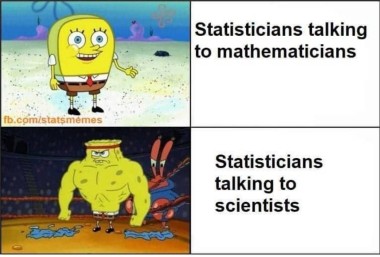Our bffs


kender242, 
“Trust in numbers” was an eye opening book I had to read for a university course.
https://press.princeton.edu/books/paperback/9780691208411/trust-in-numbers
The idea that “It’s difficult to get numbers to tell you the truth” despite how people tend to think hard data is not falsifiable - was my main take.
undercrust, For a really good riff on this same idea, I like “How to Lie With Statistics” by Darrell Huff, and it’s all illustrated!
Great, easy to understand breakdown of how statistics can be manipulated.
DragonTypeWyvern, I honestly think that book should be required high school reading.
Zehzin, 
Statistitians are good people, though I need more data points to say anything conclusively
merari42, Can you at least say how your prior belief distribution has shifted or been reaffirmed given the observed data points?
Zehzin, 
That would be pretty Bayesed
marcos, Just to point out, but you need to make sure your data is unbiased much more than you need a lot of points.
AnarchistArtificer, As a biochemist who is better at stats than the average biochemist (which is concerning, because I’m not that great), I greatly appreciate statisticians telling us off when we’re fools.
Shiggles, The second most useful thing I learned from statistics courses was the statistics. The first was just how terrible most people are in their application.
Add comment